
Rummy Nose Tetra Care Guide Keeping Tropical Fish
Golden Rummy Nose Tetra The Golden Rummy Nose Tetra is a rare gem in the world of aquarium fish. This variety stands out with a brilliant golden-yellow hue, especially in its nose and dorsal fin. Their unique coloration adds a warm and inviting ambiance to your tank. Key Characteristics: Distinct golden-yellow coloration on the nose and dorsal fin.
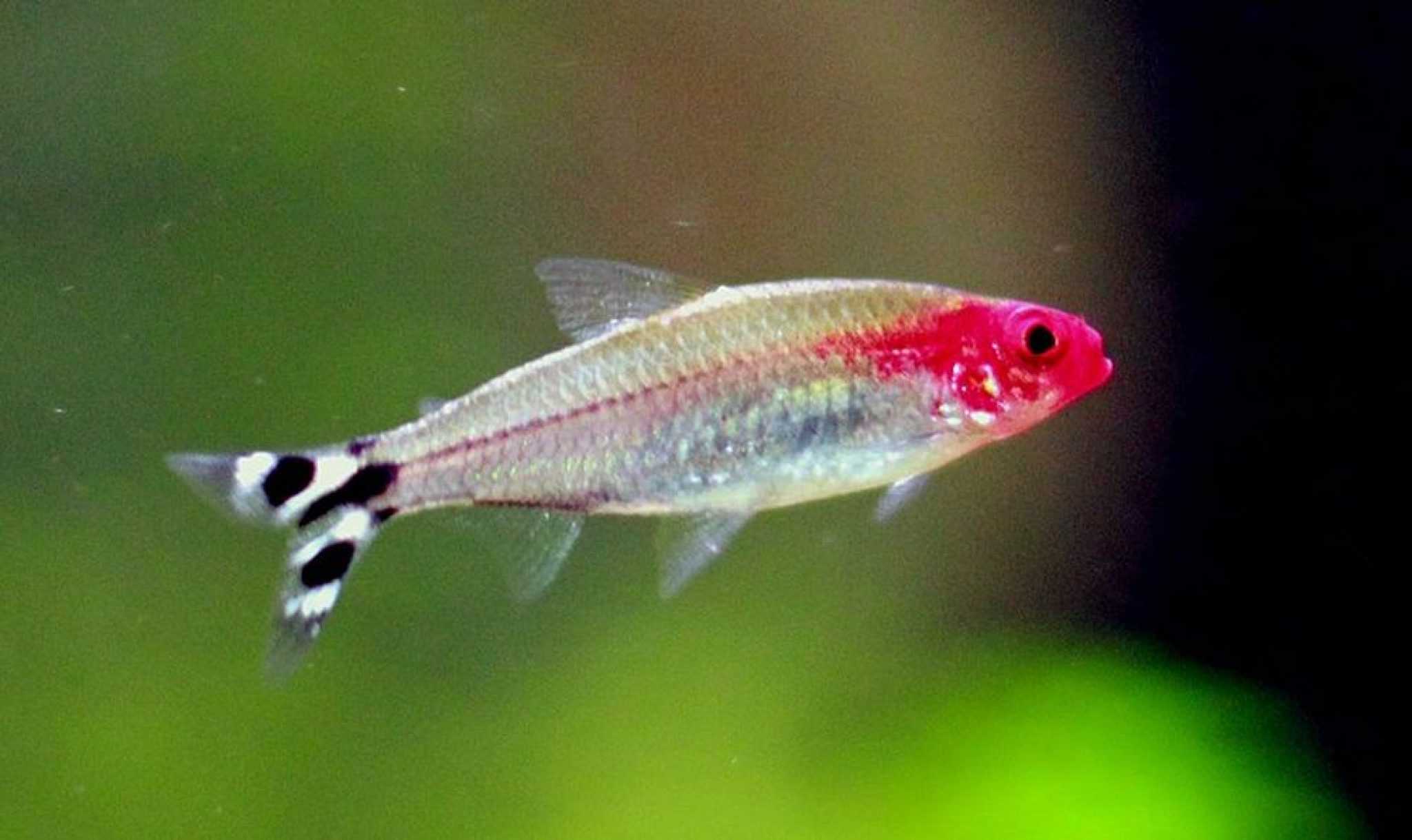
13 Best Rummy Nose Tetra Tank Mates (With Pictures!) Aqua Movement
Additionally, secure an aquarium lid to prevent your Rummy Nose Tetras from jumping out. The table below outlines the essential supplies you'll need for your Rummy Nose Tetra tank: Item. Description. Aquarium. Minimum 20-gallon long tank. Heater. Maintain water temperature between 75°F and 80°F (24°C and 27°C) Filter.
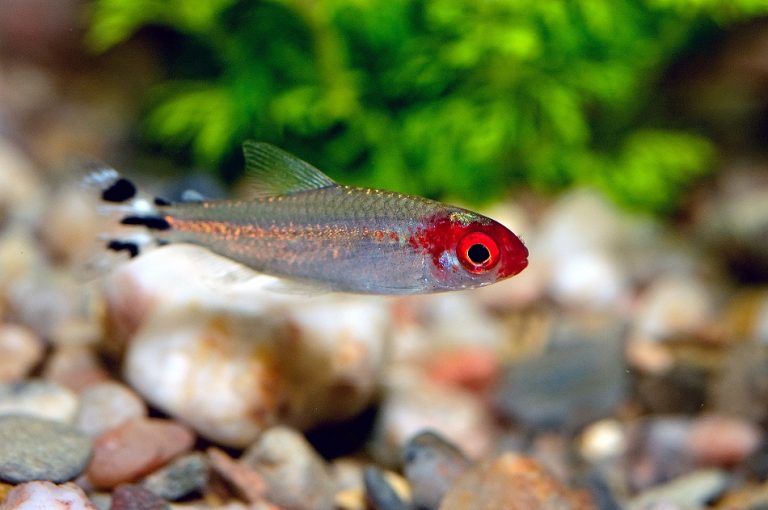
Rummy Nose Tetra Fish Info with Care Details and Pictures
Golden Rummy-Nose Tetra "Golden Variety" This is a very beautiful tetra that will thrive in community fish tanks and planted tanks. With its "blush" around the face, this gives it the name "Rummy-Nose." It has an awesome jet black and white tail, which makes this a very colorful fish despite its small size! Size is around half an inch to an inch.

Hemigrammus bleheri THE ADORABLE RUMMY NOSE TETRA ALBINO. (Leopard Aquatic C060A) YouTube
Rummy nose tetras are small fish, only growing to about 2 inches in length. They have a slender, torpedo-shaped body and a large head. The body is silvery in color, with a red stripe running from the snout to the tail. The tail fin is also red, with black and white stripes. There are three species of Rummy nose tetra:
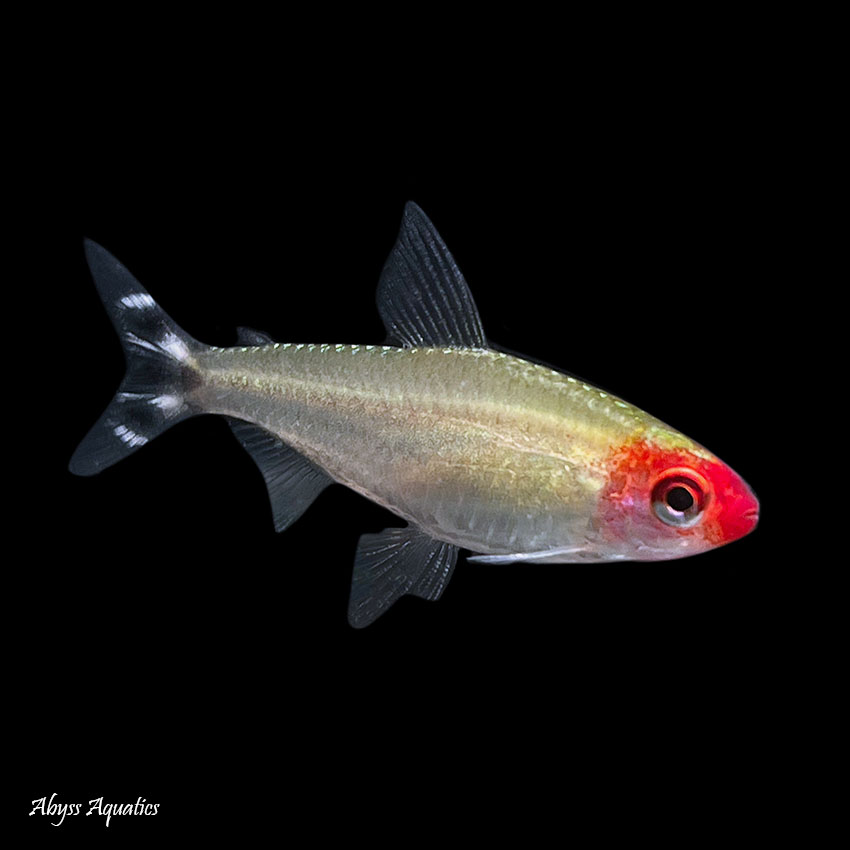
Rummy Nose Tetra Fast, Professional Service. conditioned and healthy
The typical rummy nose tetra typically grows up to 2 inches on the lower end and 2.5 inches for larger specimens. They are small fish, ideal for small tanks, and do not grow much larger. Natural habitat and origin. These species are native to South America and hail from different parts of the Amazon river. The true Rummy Nose Tetra inhabits the.
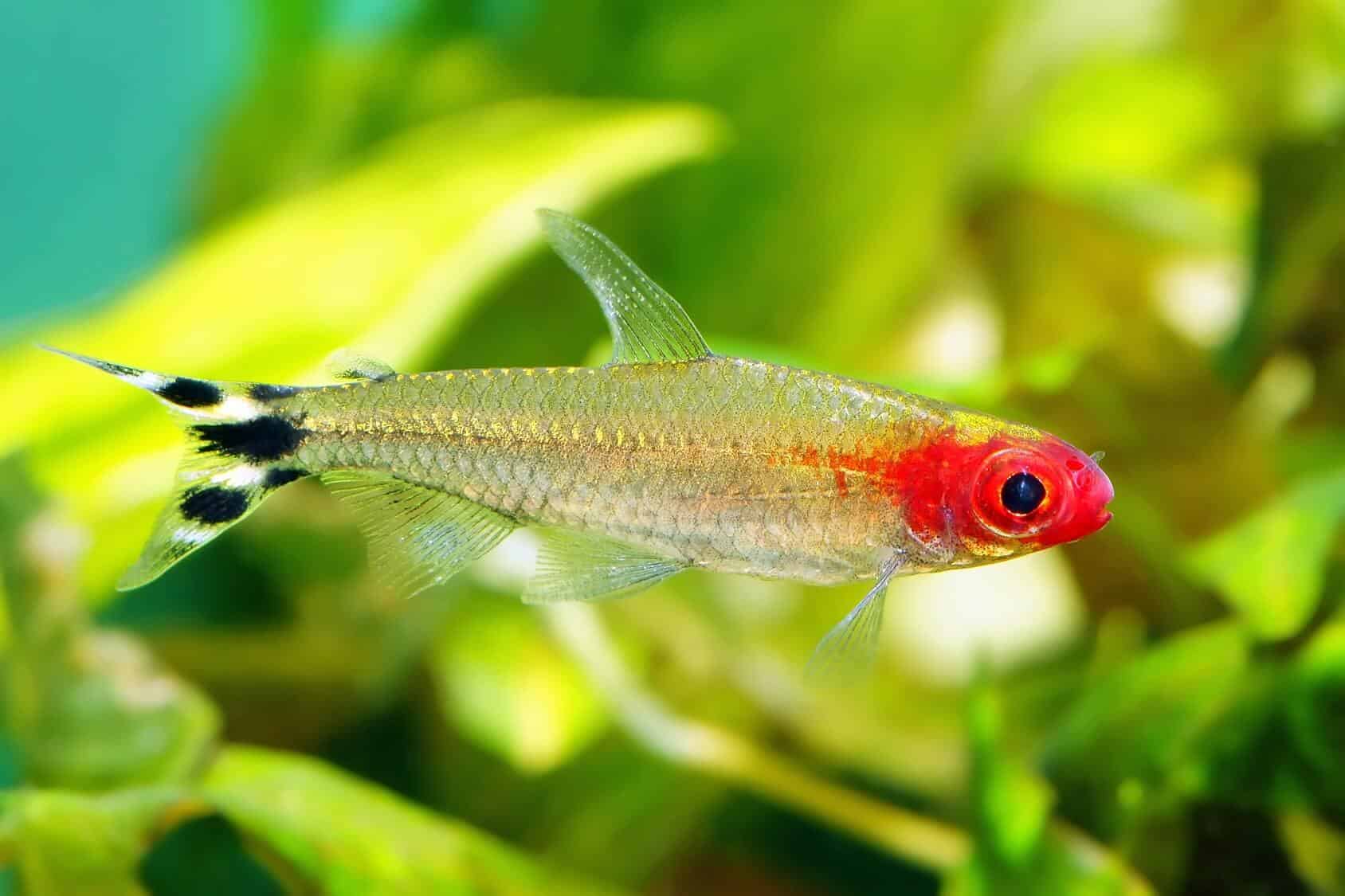
Rummy Nose Tetra Care Guide & Species Profile Fishkeeping World
The fish is silvery-golden overall, with two distinct black lines running horizontally across the body, one just behind the eye and another further back, near the dorsal fin. They were first discovered in the Amazon River by H. E. Hildebrand in 1894, who referred to them as "Serrasalmo emarginatus."

Rummy Nose Tetra Care Guide For The Uniquely Colored Fish
The Rummy Nose tetra is a gorgeous fish that can do well in community tanks with other non-aggressive species. Thanks to their small size, these attractive fish are suitable for life in a small tank. But are Rummy Nose tetras a good fit for a beginner? Do these fish need to live in a tank with a heater?

Rummy Nose Tetra Profile and Care Guide YouTube
This outgoing fish gets its common name comes from the reddish flush on its face, and there's nothing like seeing a large group of gorgeous redheads darting back and forth amidst an emerald forest of live aquarium plants. Learn more about this dazzling tetra and how to best bring out its crimson colors. What are Rummy Nose Tetras?

Rummynose Tetra size S Aqua Huna
Origin: South America Appearance: Silver body with a distinctive red nose and black wedge-shaped tailfin Size: Up to 2 inches (5 cm) in length Lifespan: Up to 5 years In this guide, we'll cover the following topics: Where Are They From? What Does The Rummy Nose Tetra Look Like? How Big Do They Get? How Long Will They Live?

Rummy Nose Tetra Here is Everything You Need to Know About the Fish
The Rummy Nose tetra has the scientific name, Hemigrammus bleheri, and is also known as the Brilliant Rummy Nose tetra, Firehead tetra, Blehers Rummy Nose tetra, and Rednose tetra. The species was first described in 1986 by Géry and Mahnert, and it is not currently listed on the IUCN Red List as vulnerable or endangered.
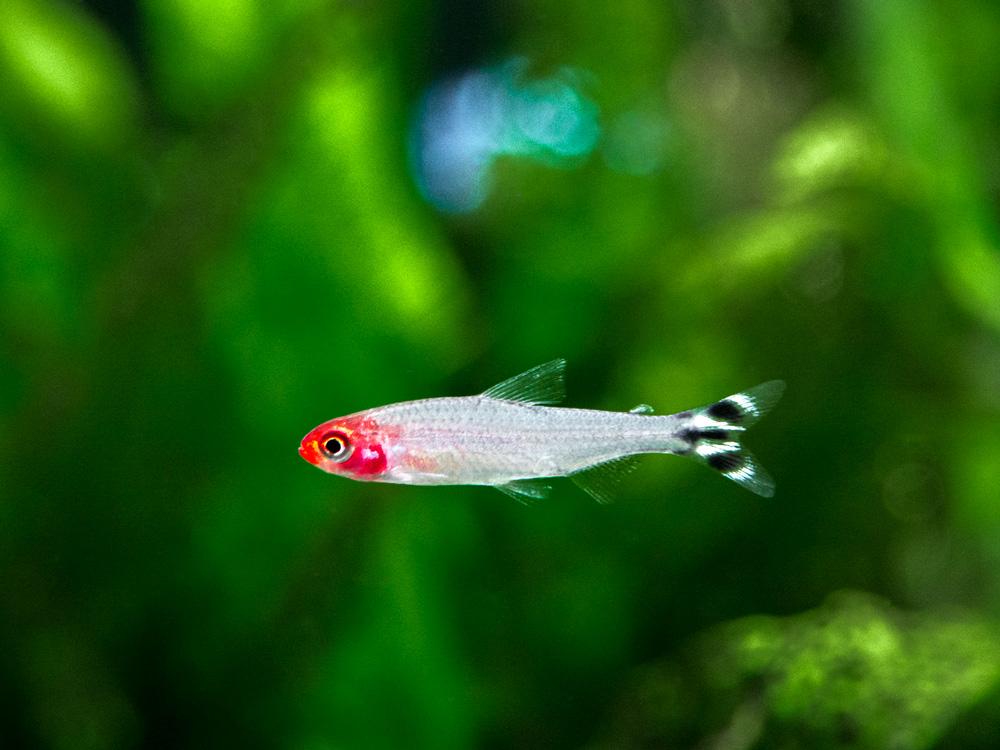
Rummy Nose Tetra Care Guide, Breeding, Tank Size & Disease
The Brilliant Rummynose Tetras are relatively small, typically reaching a length of 1.2 - 1.6 inches (3 - 4 cm), with a maximum size of 2 inches (5 cm) being possible. These fish have a silvery-gray body, with a barely noticeable greenish hue, which is complemented by a redhead and a beautiful black and white striped pattern on its tail.

Rummy Nose Tetra Care Guide For The Uniquely Colored Fish
Place the heel of your foot on its nose, turn full circle, and make a wish; well my wish came true Date of experience: March 2016. Ask Peter C about Galleria Vittorio Emanuele II. 2 Thank Peter C . This review is the subjective opinion of a Tripadvisor member and not of Tripadvisor LLC. Tripadvisor performs checks on reviews as part of our.

Rummynose tetra stock photo. Image of aquarium, transparent 18462554
The Rummy nose tetra is a beautiful freshwater fish that is easy to keep, breed, and care for. The common name for Rummy nose tetra in the aquarium world is brilliant rummy nose tetra, red nose tetra, and Firehead tetra.. Commercial breeders also produce a golden variant of the rummy nose tetra by selectively breeding, which is available for.

Rummy Nose Tetra Hemigrammus rhodostomus1478
Rummy Nose Tetras, scientifically known as Hemigrammus rhodostomus, are stunning and popular freshwater aquarium fish that hail from South America. Their vibrant appearance and peaceful nature make them a fantastic addition to any home aquarium.
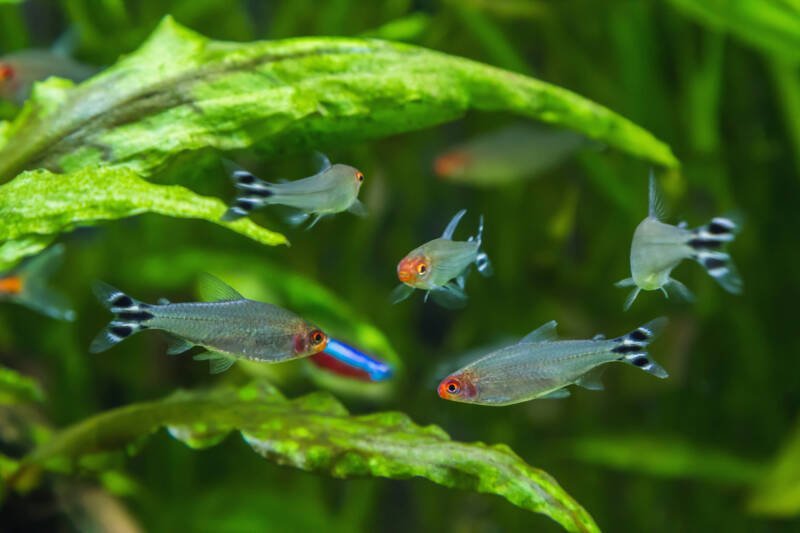
Rummy Nose Tetra Full Guide (with Setup, Mates & Breeding)
Updated: April 27, 2022 114.0K views The Rummy Nose Tetra is a neat-looking freshwater fish that are a good fit for many aquariums. While there are some considerations you need to have when it comes to caring for them, we believe anyone can handle these fish with the right knowledge.

Tetra Golden Firehead Rummy Nose Tetra (Hemigrammus bleheri) 3cm Aquarium Central
The rummy nose tetra is native to South America's Amazon River and tributaries. These waters are warm and soft (lacking heavy minerals), have a moderate current, and are slightly acidic. The riverbeds are soft and sandy, with ample rocks and sticks along the bottom.